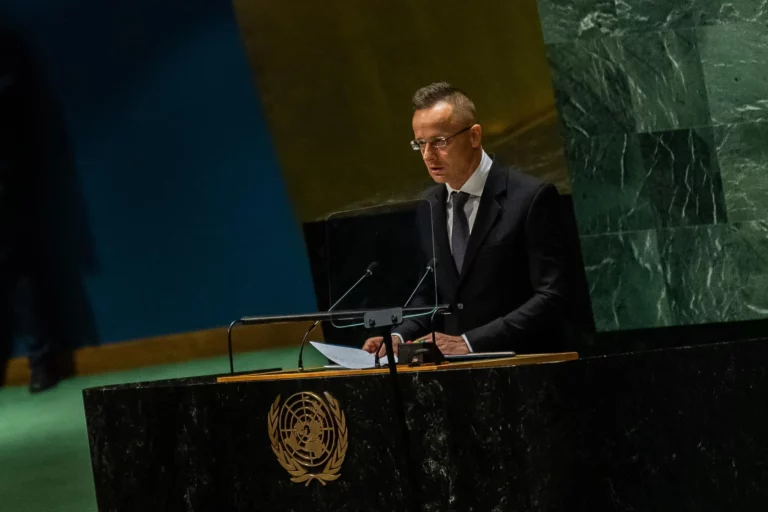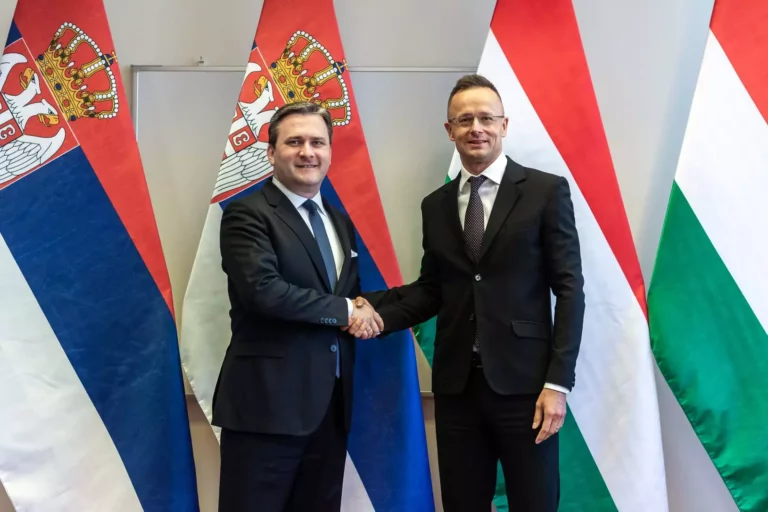Serbia
Hungarian FM: Threats to close transit routes of energy supplies undermines EU unity
Threats to close the transit routes of crude oil and natural gas threaten the European Union's unity and severely undermine...
President: ties between motherland, Hungarians outside of borders ‘inseverable’
President Katalin Novák said the ties between the motherland and Hungarians living outside of the country's borders are "inseverable", speaking...
Orbán in Serbia: farm workers will be the heroes of 2022!

Couple hid 50kg of illicit drugs next to their one-year-old child in Budapest – video

Meeting of EU foreign ministers: this is the latest Hungarian position on the oil embargo – UPDATE

Minister made important announcements in New York concerning gas transit to Hungary

Minister: the Budapest-Belgrade railway will have been renewed by 2025!

This is why several malls received bomb threats in Hungary!

Hungarian Gripens scrambled because of bomb threat on Serbian aircraft!

Minister: Serbia “should have been admitted into the European Union yesterday”

Hungarian police units to serve on Serbia, North Macedonia border

Hungary Election 2022: Many more Hungarians with dual citizenship registered to vote than in 2018

Hungarian government welcomes Vucic win in Serbia – UPDATE
Serbian civilian aircraft intercepted by Hungarian Gripens

Two-tailed Dog Party turns to Hungary’s supreme court concerning votes cast by mail
Hungary fall to bizarre own goal against Serbia – PHOTOS

Could Hungary’s gas supply hold? Here is the worst case scenario!

Confusing! Hungary mixed up with Serbia by American CNN – PHOTO





 ZH
ZH IT
IT DE
DE HR
HR NL
NL FR
FR JA
JA RO
RO RU
RU ES
ES TR
TR
